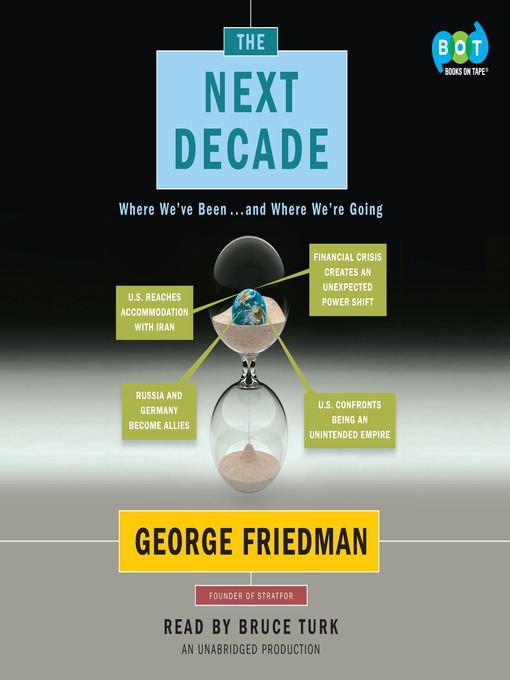
The Next Decade
Where We've Been . . . and Where We're Going
کتاب های مرتبط
- اطلاعات
- نقد و بررسی
- دیدگاه کاربران
نقد و بررسی

Friedman examines the current involvement of the U.S. in world politics and economics and then extrapolates upon his observations over the next 10 years, making more or less Machiavellian policy recommendations for how presidents can advance U.S. interests. Bruce Turk's narration is clear and measured, a style that is appropriate to the gravity of the topic and the sometimes complex material. However, his stately reading gives many phrases an overemphasis that can exacerbate Friedman's tendency to sound portentous or pompous. This tendency lessens some after the introductory section, and listeners not put off will find a book that--whether they agree with it or not--will give them much to think about. W.M. (c) AudioFile 2011, Portland, Maine

February 14, 2011
Whereas Friedman's last book, The Next 100 Years, focused on "the impersonal forces that shape history in the long run," now the geopolitical intelligence expert examines the impact of current decision making, especially of the United States government, on the world. Friedman suggests that problems currently affecting us significantly may not actually matter in the long run. He compares the position of the United States today to that of Britain in 1910, and argues that the U.S. is an "unintended empire" and that its president is a "global emperor," in part due to the size of the country's economy. Throughout, Friedman argues for an end to the reluctance, as he sees it, to entangle the country in global affairs. He examines the past strategies of Presidents Bush and Clinton and stresses what President Obama and his successor must do about terrorism and technology to foster relations with the Middle East, Europe, the Western Pacific, Latin America, Africa, Israel, Iran, and Russia. When it comes to Bush and Obama he doesn't play favorites, criticizing their policies and comparing them with presidents who possessed more Machiavellian attributes, in his view. While his ideas are well-researched and compelling, Friedman makes the occasional leap that casual readers might find confusing.

























دیدگاه کاربران